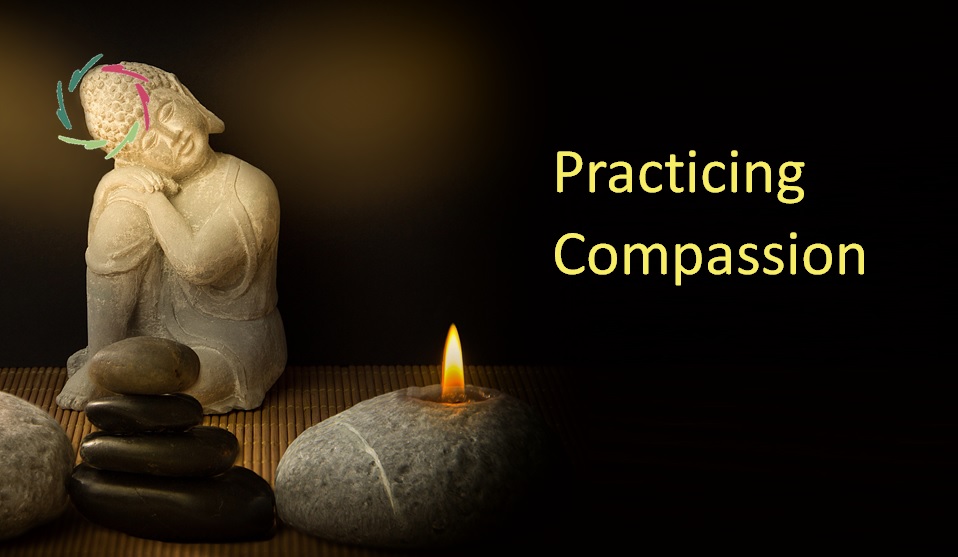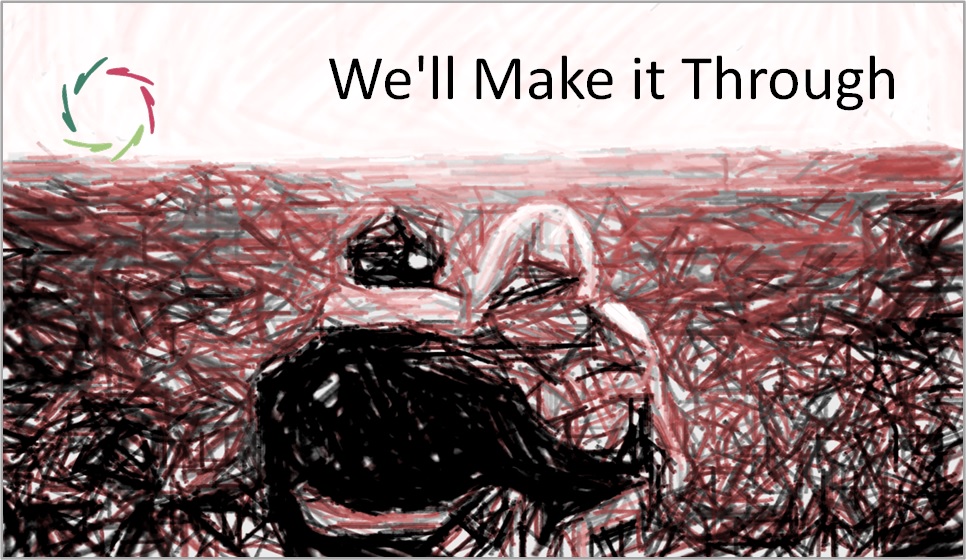Practicing Compassion

Deep, spontaneous, difficult. Looking for a shortcut? Then it’s even much more difficult.
Formal meditation
Yes, the beautiful action ― in my view, warm and friendly. [see: “True Meditation is Warm and Friendly”]
At least this kind of meditation is a direct practice of Compassion towards yourself, then towards others, and all sentient beings.
Soto, Rinzai
are two of many traditions and kinds of meditation. Of these two Chan/Zen types, the way towards enlightenment takes years to the former and is a rather instant happening to the latter.
This already shows substantial differences. The world of meditation is a giant patchwork. The genuine, overarching goal is enlightenment, not always Compassion. Of course, it can be. [see: “Meditating on Compassion”]
Optimally towards our goal, formal meditation is an exquisite instrument, although not a necessary one. If you like guided meditation, here’s a free app for you.
Complex Compassion
Having a deep insight into the complexity of complexity is another excellent support towards Compassion. [see: “Complex is not Complicated”] [see: “Complexity of Complexity“]
Complexity is mainly what makes Compassion difficult. It also shows the rationale for meditation as a road towards complexity ― called Emptiness in Chan/Zen. We can bring this together with modern science and the subconceptual oneness of mental and neuronal patterns. [see: “Patterns in Neurophysiology”]
In Buddhism, much thought goes to ‘ego’ – better: mere-ego [see: “The Story of Ego”] – as hindering enlightenment. That’s a perfect point. Ego is fundamentally not about complexity.
Lower that wall
Mere-ego is like a wall that hinders deep communication towards oneself (depth inside) and others. In other words, it hampers Compassion.
Ego is crucial. Mere-ego is an aberration.
The point of Compassion is to lower the wall and be present, awake, as a total-person. This is also an ethical stance for Compassion to turn out all right.
In short, we have three orientations: meditation, insight, ethics.
In caregiving situations
Psychotherapeutic modalities don’t contribute to effectiveness. [see: “Psychotherapy vs. Psychotherapies”] If one wants to be straight open with clients/patients, only the empathic range remains interesting.
Open your empathy towards complexity – beyond the conceptual – and you are at Compassion. [see: “Empathy – Part 3: ‘Beyond the Conceptual’”] It may then become noticeable that its effectiveness is immensely underrated. Yet, no instruments-between-people can heighten this. Note that ego can search for them for very many years, but it doesn’t work that way.
For practicing Compassion, what is needed is You as a total-person.
Then, and only then, the quality depends on what is inside You. You can heighten this by being Compassionate, by listening deeply in many situations. [see: “Deep Listening”]
For a professional caregiver, of course, these are never far away. People specifically come to you for this. I know. I have been one for years as a physician and a coach. And I dare say, I have learned something profound from every single consultation.
This is open to every person. It’s like a bucket that gets filled and spontaneously overflows. In this act, nothing gets lost.
On the contrary.


